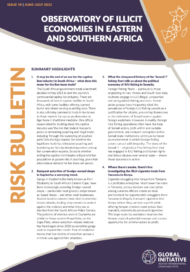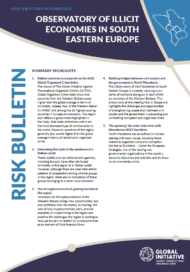Posted on 22 Aug 2005
Among the array of challenges facing the Central Asian region, illicit drugs have since the mid-1990s gradually risen to prominence. With continuously increasing opium production in Afghanistan and an increasing share of that production transited northward through Central Asia, the impact of the drug trade on the region is only worsening. The implications of the drug trade are multi-faceted: through addiction, epidemics, and related crime, it affects public health and societal security. Through its profit margin and sheer financial weight, it affects the economies of the region. By exacerbating and deepening political corruption and due to ensuing damage to the national and international legitimacy of governments, it affects political stability. Finally, through its role in the financing of terrorism and insurgency, it affects national security in the most basic, military sense of the term. Presently, illicit drugs therefore pose a clear and present danger to the security of states, societies and individuals in this region.
In response, the states of the region have gradually tried to cope with the multiple threats posed by the illicit drug trade. But on their own, Central Asia’s states do not have either the institutional structure, expertise, experience or the resources of developed countries – who themselves have often been at a loss in devising effective strategies to deal with the drug trade and its consequences. As meaningful regional cooperative mechanisms are missing in the region, the states of Central Asia have chosen different paths in their conceptual and organizational approaches to the problem, while no state has fully arrived at a complete strategy for its counter-narcotics policy. Without such a strategy, the efforts of individual states are unlikely to succeed.



